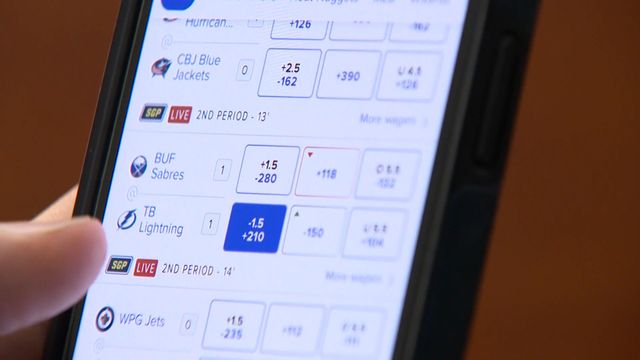Win or lose, tax bill will come for new sports bettors in NC
A lot of people think you can net out gambling wins and losses on your taxes like you can with capital gains or cryptocurrency.
But that’s not how it works in North Carolina.
If you win anything at all, you owe taxes on it under state law and you may owe the feds, too.
Most people who bet on sports don’t think they win enough to owe taxes on it, like Cherie Franklin and Gene Washington.
"As far as now, until I win big I’m not gonna worry about it," Franklin said.
"That’s why I don’t bet big – just a little bit here and there, just to have fun," Washington said.
But under state law, you owe taxes on anything you win, no matter how much you may lose.
Let’s say I bet $20 even money on NC State – and they won, so I won $20. So now I have $40 – and I bet on them again – and this time they lost, so I lost $40.
Now I have nothing in my account - a net loss. But I still owe income tax on the $20 that I won, even though I never cashed it out.
At the federal level, Uncle Sam will let you net out some losses – but only up to the amount that you won, and that’s only if itemize your deductions, which most people don’t do.
At the state level, you can’t deduct gambling losses at all.
NC State economist Nathan Goldman says gambling winnings have always been considered taxable income. But the sports betting apps make it easy for the taxman to track how much you’re winning.
"Once you exceed $600, you will receive a W-2G in the mail. This is gonna be just like any other document that you get from like your employer or from a brokerage if you have some investments," Goldman said.
If you don’t win $600 with any one sportsbook, you won’t get a tax form, but you still owe federal and state tax on what you did win.
"You're required to self-report it," Goldman said. "Whether or not you do it is up to you. And I suspect a lot of taxpayers will probably err on the side of not reporting it. But that's not what the law says."






